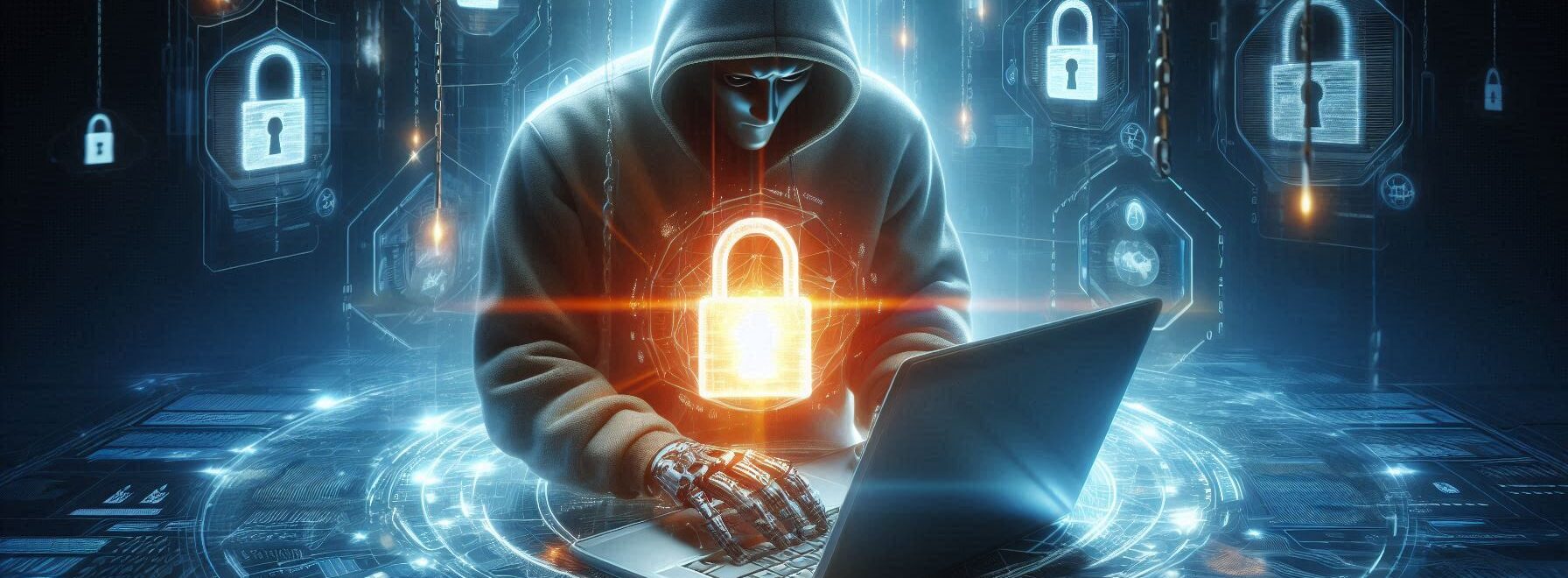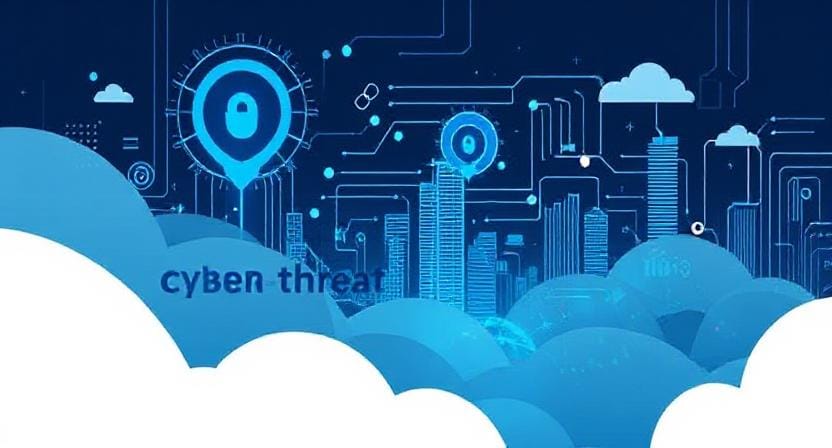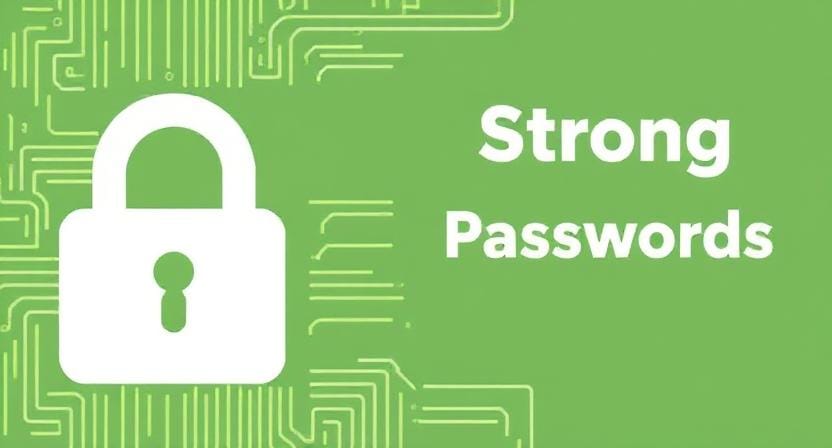Top Takeaways and Key Concepts
- Create strong passwords using unique phrases with letters, numbers, and symbols for every account.
- Enable two-factor authentication to add a second security barrier to logins.
- Avoid phishing scams by ignoring suspicious emails, links, and unknown senders.
- Keep devices updated to patch security vulnerabilities and block cyber threats.
- Use backups and a VPN to protect data and stay safe on public Wi-Fi.
Summary of This Article
This article explains how to protect yourself from growing online threats like phishing, malware, and scams. It encourages building strong, unique passwords, enabling two-factor authentication, and keeping software updated to block security gaps. It also emphasizes avoiding suspicious links, backing up data regularly, and using a VPN on public Wi-Fi to stay secure. With awareness and simple habits, anyone can guard their personal information and stay safe online.
Short Video Version of this Article
These days, protecting your data seems like trying to keep a bunch of nimble small hands away from the final cookie. It’s hard! There are a lot of hidden risks online, and they’re constantly ready to take that cookie right out of your hand. People get phishing emails, and they can make anyone feel dumb. You click on something you think is secure, and then it happens. It’s like putting that cookie right in front of the kids.
Next, there’s malware. That stuff can really screw up your machine. Instead of your reliable computer, you get a flashy paperweight. It feels a little dangerous to log into the internet every time, like walking a tightrope over a pit of hungry babies!
Please Note: This post may contain affiliate links. If you click one of them, we may receive a commission at no extra cost to you. As an Amazon Associate, I earn from qualifying purchases.
But we don’t need to freak out. We can keep our digital things safe. First, make sure your passwords are strong. Think of them as a cookie jar that is very hard to get into. Combine letters, numbers, and symbols. It keeps the cookie thieves away!

Two-factor authentication is like putting a lock on the jar. Someone needs a password and a key. It makes it a lot harder for those sly invaders to get in.
Don’t forget to update your software. Updates could seem like a pain, like when little kids ask for cookies every five minutes, but they really fix small gaps that bad folks could use to get in.
Another sensible thing to do is back up your data. It’s like putting some extra cookies in a safe place so you don’t lose them if someone breaks into your house. If something goes wrong, you won’t lose everything.
Don’t forget to be careful with those emails. If something seems wrong or too good to be true, it probably is. Imagine that a cookie landed on the floor. Just leave it alone!
So, we can work together to make our digital castles sturdy. How do you keep those cookies safe? It’s completely feasible! Let’s just stay alert and watch out. We can enjoy our cookies without worrying too much that way!
Understanding the Cyber Threat Landscape

Let’s talk about what we have to deal with first. The cyber threat landscape is as big and dangerous as any trek in the woods, but instead of bears and mountain lions, we have hackers and ransomware.
You know how some emails appear like they’re from your bank but really originate from “noreply@totallylegitbank.com”? Yes, those are like a bear in a tutu trying to get you to follow it into the woods by promising you honey.
It’s kind of astonishing how many people don’t know how regularly these cyber dangers happen. For real! Every day, millions of phishing attacks happen. That’s a lot! A lot more than the times I’ve burned toast while looking at my phone. And believe me, that happens way too often.
It’s like walking through a forest and needing to know which berries are safe to eat. Some of them could look absolutely good—bright and shiny—but they could be bad news. Stay away if anything appears strange or smells bad. The same is true for things on the internet. If you get an email that seems strange, just ignore it.
It’s quite helpful to know what kinds of hazards are out there. Scammers are really clever. It can be hard to tell if they are who they say they are. Don’t click on links or give out information unless you’re sure it’s safe, just like you wouldn’t eat a fruit unless you were sure it was safe.
We can stay out of trouble by taking the time to learn these skills. It gives you strength, like having a special guide to help you collect berries. Being aware is important.
So, let’s keep a look out and keep our information protected. It’s a wild world out there, but we can find the tastiest fruit together!
Creating Strong Passwords

Now let’s get down to business: passwords. Honestly, I believe creating strong passwords should be considered an Olympic sport at this point. It’s not just about mixing letters and numbers—it’s about crafting something so complex that even a supercomputer would throw its hands up in defeat.
You know, using “password123” really isn’t going to work anymore. It’s just way too easy for someone to crack that. Instead, try thinking of a fun phrase only you understand. Maybe something like “My cat loves pizza on Tuesdays!” It’s silly, but it sticks in your mind. Just don’t go telling everyone, or you might start seeing your cat’s pizza habits all over social media.
And let’s talk about sharing for a second. Mixing up your passwords is super important. Don’t use the same one for every account! Each site needs its own password. Think of it like a lock for each door in your house. If one door gets broken into, you don’t want all the others wide open too.
It’s like those dominoes. If one falls, the rest might just follow. Keep your online life safe by giving each account its own special password. That way, if something goes wrong with one, the others stay safe.
Making passwords might seem like a hassle, but it really helps protect all your stuff. Just a little extra effort can really pay off in the end. Stay safe out there!
Two-Factor Authentication: Your Digital Sidekick
What if I told you that there is a really simple method to make your life online even safer? Two-factor authentication, or 2FA for short, is what it’s called. Think of it as having an alarm system and a guard dog at home. You already have a strong password, but adding 2FA makes you even safer.
Two-factor authentication (2FA) makes it hard for anyone to get into your account even if they have your password. It may be a text message or an email with a code in it. It’s like needing two keys to open a treasure trove instead of just one. Someone who acquires the first key somehow is still having trouble finding the second one.
I know, I know… It could be a little bothersome at first. Who has time for more clicks, right? But just think about it. That little bit of extra work can keep you from having to deal with big problems later, like identity theft.
You know that feeling when you uncover an extra cookie at the bottom of the jar? A small surprise that makes it all worth it! Friend, stay careful and keep adding those layers. You can do this!
Being Wary on Public Wi-Fi
Who doesn’t like free Wi-Fi in public places? It’s like finding treasure on a trek, isn’t it? But hold on a second. That treasure can have some cunning pitfalls! It’s like leaving your front door wide open and inviting hackers around for tea and crumpets if you use public Wi-Fi without protection. Wow!
When you’re at a coffee shop, airport, or anywhere else with public Wi-Fi, you should think about using a Virtual Private Network (VPN). It’s like wearing a mysterious shroud. A VPN protects your internet connection and makes it comfortable, so people can’t see what you’re doing.
Picture this: you’re busy ordering that nice cappuccino, but instead of stressing, you can just relax. When you utilize a VPN, no one can steal your private information as you enjoy your drink.
It can seem like one more step, but it’s well worth it. It’s like putting on your seatbelt before you drive. You wouldn’t skip that, would you? So, get that VPN and relax with your coffee. You deserve it!
Regular Software Updates: Don’t Skip Them!
Hey! Quick question: how frequently do you hit “remind me later” when those annoying software updates show up? You probably ignore them way too much, just like I do. I understand. Life is busy. But here’s the thing: it’s really crucial to maintain that software up to date. Developers are continually working to make our gadgets safer. It’s like giving your devices a little extra armor!
Imagine going camping without first checking the weather. You wouldn’t want to get caught in a sudden storm because you didn’t pay attention to the weather forecast, would you? That would be a wet, awful time!
It’s the same as leaving your tent flap wide open at night if you don’t pay attention to those updates. It lets hackers in way too easily. They’re constantly looking for an easy victim, and an old system is just asking for disaster.
So, the next time you see that little update message, don’t just click “remind me later.” Think of it as finding clean water after walking for miles. It’s a little bit of work, but in the long term, it will keep you safe and happy! You can do this!
Educating Yourself About Scams
You know? Knowledge is the best method to be protected from internet problems. Really! Knowing about typical scams is like having a secret weapon against people who are trying to trick you.
Think about those calls for phony tech support. They offer to remedy problems that don’t even exist. It’s crazy, isn’t it? And what about those scams that happen when you shop online? It’s usually too good to be true when they say, “Look at this great deal!” Knowing about these things will assist you avoid falling into them.
Taking online classes or going to community workshops on cybersecurity can really assist. It’s like giving oneself weapons to fight back. You can also tell your relatives what you learn. Sharing suggestions on how to avoid frauds over dinner is the best way to show you care. It’s all about taking care of each other!
So why not get right in? A small amount of knowledge can make a big difference. You can do this!
Featured Snippet: Staying safe online starts with awareness and simple digital habits. Strong passwords, two-factor authentication, software updates, data backups, and caution with links and public Wi-Fi can significantly reduce cyber risks. With consistent attention, anyone can protect their personal information from common online threats.
Frequently Asked Questions
Why are strong passwords important for online safety?
Strong passwords make it harder for hackers to access your accounts by guessing or using automated attacks.
What is two-factor authentication and why should I use it?
Two-factor authentication adds a second verification step, preventing unauthorized access even if your password is stolen.
How can I avoid falling for phishing scams?
Avoid clicking suspicious links, verify sender identities, and ignore emails that seem urgent or too good to be true.
Do software updates really protect my device?
Yes, updates fix security flaws that hackers exploit, keeping your system and apps protected from attacks.
Why should I back up my data regularly?
Backups ensure you can recover important files if your device is hacked, damaged, or infected by malware.
Is it safe to use public Wi-Fi without protection?
No, public Wi-Fi is risky because hackers can intercept data, so using a VPN adds protection.
How can I learn more about online scams and cybersecurity?
You can stay informed through online guides, community workshops, and trusted cybersecurity resources to improve awareness.
Suggested Resources:
Cybersecurity & Infrastructure Security Agency
https://www.cisa.gov/cybersecurity
StaySafeOnline
https://staysafeonline.org
Krebs on Security
https://krebsonsecurity.com
National Cyber Security Centre
https://www.ncsc.gov.uk
CyberAware
https://www.cyberaware.gov.uk

Kevin Collier is a seasoned outdoor enthusiast and writer for Trekbug.com, specializing in outdoor adventures, survival strategies, and prepping insights. With a deep love for nature and a commitment to self-sufficiency, Kevin empowers readers to embrace the wilderness confidently. He shares valuable tips, practical techniques, and inspiring stories, helping both novice and experienced adventurers develop essential skills for surviving and thriving in the great outdoors.





